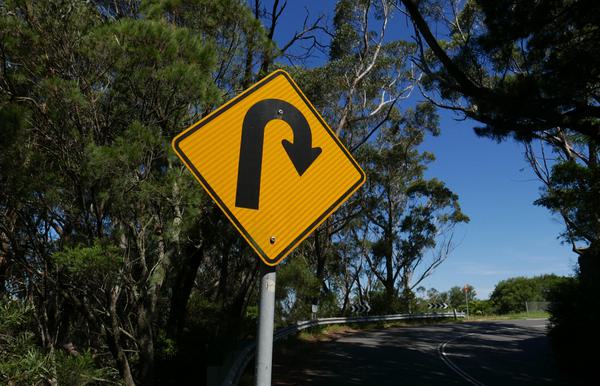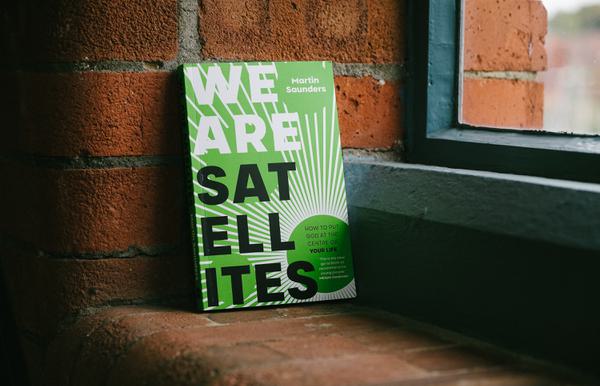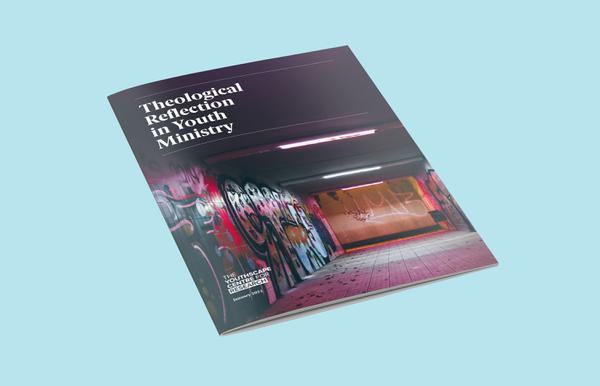Could behaviours learned in childhood lead you to youth work burnout? David Bunce explores how a psychological theory can help youth leaders better serve young people.
In a previous article I talked about the way that much of our work as youth leaders arises out of chronic anxiety. Using the work of the excellent prophet Billy Joel, I asked the question: what is it that is driving us in youth ministry?
Now, strange as it may seem, Billy Joel is not the only way of answering this question. And so I want to introduce another way of thinking about why we do what we do. And so, buckle in: we’re taking a deep dive into a little bit of psychological theory called Family Systems Theory.
My first encounter with Family Systems Theory came in my mid-20s when I hit a patch of ministry burnout combined with a pretty nasty conflict in one of the teams I was working with at the time, presenting as a run of very long and frequent panic attacks, including the first one in the middle of Leipzig train station 400 miles from home (note: I don’t recommend getting into this situation and one of the reasons I am interested in this question is to help youth workers have some tools for self-care).
Reverting to childhood
So: what is Family Systems Theory? At a very basic level, it describes relationships between people in an emotional unit – be that an actual family, or a church, or a youth group, or an office. And it describes how we all function within these emotional units using patterns that we learned very early in childhood. We all have, effectively, a default way of responding to people in the emotional groups we are in.
Say, for example, you grew up in an environment where you were rewarded with emotional praise for saying something clever? Well then, on a subconscious level, you have learned as a child that being right = attention, safety and reward. The thing is, Family Systems Theory says – you still react like this as an adult. OK, maybe we hide it a little better behind a façade of competence and using longer words. But the basic pattern is set.
In normal life, this is fine. This is a natural process that helps communities to bond and work together. And if you are a nomadic tribe trying to hunt and not be eaten by lions, these patterns form a life-saving role, allowing the group to act on instinct. And when everything is calm and there are no lions on the horizon, most adults can act in ways that go beyond their childhood patterns.
The problem comes when the emotional temperature in an emotional unit begins to increase. For instance, if there has been a global pandemic and everyone is running on fumes. Or if there is a pressure from church leaders that teenagers come back to youth group after Covid, and the youth worker feels their salary is dependent on it. Or if a team is split over the best way forward in a particular suggestion. Then this emotional temperature can bubble away and become destructive – family systems theory refers to this as ‘chronic anxiety’, a kind of anxious energy in an organisation that causes us to revert to our childhood ways of functioning.
"Maybe we need to be right and have all the answers (because that’s what got us a reward as children), and so we instinctively respond with some smart theological statement that ties up all the pain in a neat God-knot, when really the young person needed silence."
This kind of anxiety is infectious in a group. Have you been a situation where one person’s anger or worry or fear has affected everyone else in that group and lead to a decision to pacify that person? Chronic anxiety is a way of naming what was going on there. Or have you found yourself verbally lashing out, or withdrawing from a difficult conversation, or making compromises you wouldn’t otherwise make? Yup – chronic anxiety means you are reverting to your childhood ways of functioning in the world.
Family Systems Theory is a way of winning some space for self-reflection. I can step outside the emotional flow of a situation and work out what it is that is driving me. Why am I acting why I am acting?
In my case a few years back, Family Systems Theory helped me to understand that I had developed a childhood aversion to conflict, and so often tended to withdraw from conflict and unhealthily pacify, rather than standing up for what I believed in and pushing through the conflict to the possibilities on the other side. That helped me rethink how I positioned myself in the conflict situation at work. And it helped me to understand how, when stressed and when the organisation I am in is stressed, I tend to take on far more than my fair share of responsibility for a problem (in Family Systems Theory this is called ‘over-functioning’) and throw more and more of my energy into trying to solve it. Friends: guess what might have been the driving factor behind my burnout.
What is it that is driving us?
Being present for young people
And – and here we come back to where we started, see I promised it would pay off – Family Systems Theory helps us to understand if why it is so hard for us to simply be present and minister to each other and to young people. When we slow down and are present to our young people – when we enter into their worlds, then we expose ourselves to all sorts of chronic anxiety. At one end, you might have drama between a group of friends, or a misunderstanding of expectations. But you might also have a young person’s confusion about the divorce of their parents. Or their diagnosis with a chronic health issue. Or their agony about a friend’s suicide. We enter into their pain – and we find ourselves in the grip of the chronic anxiety in the space between us.
"The path towards being able to truly be with someone, to be able to begin to minister to someone, is to ask what is it that is driving me."
And, if we are not careful, we then default back into our own childhood way of reacting. Maybe we need to be right and have all the answers (because that’s what got us a reward as children), and so we instinctively respond with some smart theological statement that ties up all the pain in a neat God-knot, when really the young person needed silence. Maybe we needed people to like us as a child: and so we do our best to cheer up the young person, to make them smile. Maybe we needed to be successful, so we begin to work on a solution. Maybe it is something else. Whatever it is: each instinctive way of reacting draws us away from ‘being’ with a person, and back into ‘doing’ – trying to fix, mend, improve, resolve. And again: filling the God gap with ourselves, because we can’t sit in silence and trust that God will fill it.

What is driving us?
What is it that is driving us? I keep coming back to this question because I think it is the way out of this conundrum. And because I think it is far easier to prevent burnout than to recover from it. Take it from someone who has been there. So, we need to ask ourselves this question: what is really driving me? If you’ve followed Youthscape for a while, you will know that they champion the idea of reflective practice in youth work. Doing some reading on Family Systems Theory (I’ve listed a couple of easy-reading suggestions at the bottom of this article) and then working on yourself could be a way of working towards health in our reflective practice.
The path towards being able to truly be with someone, to be able to begin to minister to someone, is to ask what is it that is driving me. To learn to know myself, to know how I respond under pressure, or in situation of chronic anxiety, or when exposed to the rawness of someone else’s pain.
Why is it I felt the need to rush in with a quick answer instead of sitting with the pain?
Why is it that I feel the need to produce and produce and produce after the pandemic?
Why is it that I jumped in with the ‘safe’ answer during that Bible study instead of letting my young people wrestle with the question?
Why is it that I added the words ‘but of course you know what is best’ when praying for healing?
Why is it I try to solve that young person’s problem instead of just listening to the anguish and bringing it together into the presence of God?
To learn to minister, to be present, to slow down is first of all to pay attention to what is going on inside of me. To be able to name it. And then to choose to go beyond that instinctive pattern of behaviour, to dare to believe that God might indeed show up, that I don’t need to fill in for his action by my words or my actions or my entertaining behaviour.
My awesome friend Holly asked me in the context of an interview: if you’re right and we learn to still our anxious souls and to simply be present: what would change? I said it was a bit like walking into a casino and putting all our savings down on 17 (or whatever one does in a casino – I grew up Baptist…). There’s a very real risk we might lose everything. God might, in fact, not turn up. We need to face the void, to hear our anxieties. To see how our own behaviour is so often driven out by this chronic anxiety.
And then we need to do it anyway.
And maybe, just maybe, we might discover that God, the one who ‘gives life to the dead and calls into being things that were not’ (Romans 4:17) does turn up. And brings hope into hopeless situations. And meets powerfully with young people. And shows us that our weakness is actually the source of His strength. And turn the broken shards of our lives into a beautiful mosaic.
David is a British pastor ministering in a church in Bad Ischl, Austria. He also leads the Austrian Baptist Union Youth and Children's Department, where he seeks to help equip volunteers and churches to do great youth and children's work. He lives in the middle of the Alps with his family and an ever growing collection of balcony plants.
More reading on Family Systems Theory
- Steve Cuss, Managing Leadership Anxiety, Yours and Theirs (2019)
- Ronald Richardson, Creating a Healthier Church (2016)
- Peter Steinke, Congregational Leadership in Anxious Times (2016)










